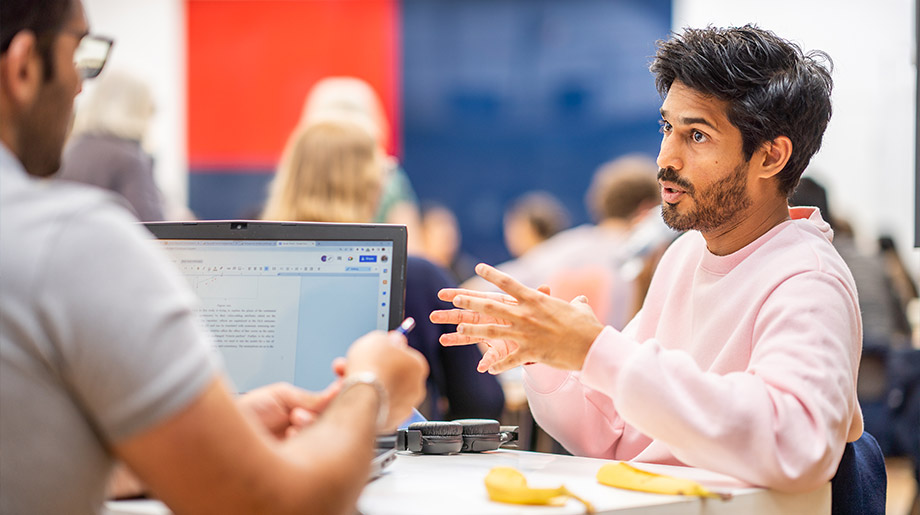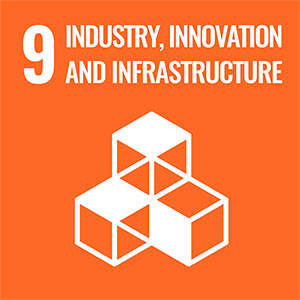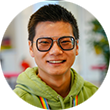MSc ICT Innovation KTH
The master's programme ICT Innovation combines technical competencies with skills in innovation and entrepreneurship. The programme strongly focuses on integrating education, research and business modules in its curriculum, with active industry involvement. Students choose one of six technical specialisation tracks. Graduates work with system and software development, product management, business development, start-ups and consulting.

ICT Innovation at KTH
The master's programme in ICT Innovation’s main subject is Computer Science and Electrical Engineering. The programme combines advanced technical education in information and communication technology (90.0 ECTS credits) with business-oriented courses focusing on innovation and entrepreneurship (30.0 ECTS credits).
Innovation and Entrepreneurship (I&E) education within the ICT Innovation master’s programme prepares future ICT engineers to exercise an entrepreneurial mindset to contribute to digital transformation. The courses focusing on I&E are taken by all students in the programme, regardless of the chosen track.
There are five tracks offered through the programme that provides further technical specialisation.
Autonomous Systems
The Autonomous Systems track is a combination of computer science and mechatronics engineering. The track is well aligned with market demand in the automobile, manufacturing, logistics, shipping, mining, and recycling industries. Autonomous software systems are also widely spreading in application areas, such as media, finance, customer service, and healthcare.
Data Science
The Data Science track concerns methods and technology for collecting, organising and analysing data to generate new knowledge. This includes implementing and applying machine learning algorithms, platforms for distributed handling of extensive data, large-scale machine learning, algorithms and systems for descriptive and predictive modelling, including the analysis of complex data such as networks, text and images.
Visual Computing and Communication
The Visual Computing and Communication track combines computer science and information technology in the areas of image processing and communication, image analysis, computer vision, computer graphics, augmented reality, visualisation, visual analytics, as well as web-based and network applications.
Human Computer Interaction and Design
The Human Computer Interaction and Design track take an interdisciplinary user-centred design approach by placing the users at the centre of the design process. The track combines human aspects (both at a cognitive, aesthetic and sensory-motor levels) with technological and business aspects to create new products and services with great usability and user experience, and solid customer demand.
Cloud and Network Infrastructures
The Cloud and Network Infrastructures track focus on communication network design, management and operation on the one hand and cloud service and deployment models, and application design on the other. The track also addresses future directions of cloud computing, for example, in the fields of edge and fog computing as well as blockchains and distributed ledger applications.
A key component in all specialisations of ICT Innovation is the integrated combination of a master’s degree project (30 ECTS), an “internship” (which should be included in the degree project credits) and an I&E project (6 ECTS). The industry-based degree project (typically integrated with the "internship") is well integrated with the I&E minor and technical majors.
The programme covers two years of study at KTH in Stockholm. However, students who would like to attend the second year of the programme abroad can do so under the EIT Digital scheme to which this programme is attached. This creates flexibility for students who would like to continue their second year on the programme by either staying at KTH or deciding to do the second year abroad at one of the other EIT Digital university members.
This is a two-year programme (120 ECTS credits) given in English. Graduates are awarded the degree of Master of Science, with a major in Electrical Engineering or Computer Science and Engineering. This programme is currently being relocated from the KTH Kista campus to the KTH main campus in Stockholm. We plan for students who start in the autumn of 2025 to study at the KTH main campus. The programme is provided by the School of Electrical Engineering and Computer Science (at KTH).
For details about the joint EIT Digital program please see EIT Digital Master School .
Courses in the programme
The courses in the programme cover topics such as marketing and market analysis, business formation, project work and management, advanced ICT.
Courses in the programme ICT Innovation
Future and career
With the business-oriented focus combined with the technical specialisation, you will find a plenitude of job and carrier opportunities. Examples include; innovative start-ups, research-driven organisations and advanced IT businesses worldwide. The programme works closely with a wide range of first-class companies to connect and prepare you for your future career. You will interact with business and industry partners throughout the whole programme. You will also get to conduct your master’s degree project with our partners on real-life projects. In addition to improving students' cultural and language skills, this experience will give them expertise in their chosen technological field and excellent qualifications for managerial posts in global markets.
Sustainable development
Graduates from KTH have the knowledge and tools for moving society in a more sustainable direction, as sustainable development is an integral part of all programmes. The three key sustainable development goals addressed by the master's programme in ICT Innovation are:



Overall, digitalisation can play an important role in leading sustainable development in the use of more effective ways to use resources and improve everyday life. In the programme, we provide a foundation for sustainable development in engineering, and more specific knowledge about digital innovation systems for decent work conditions and economic growth to achieve a more sustainable industry and infrastructure for sustainable cities and communities.
Faculty and research
We have a broad group of teachers that is also active in different research areas represented by the different tracks.




